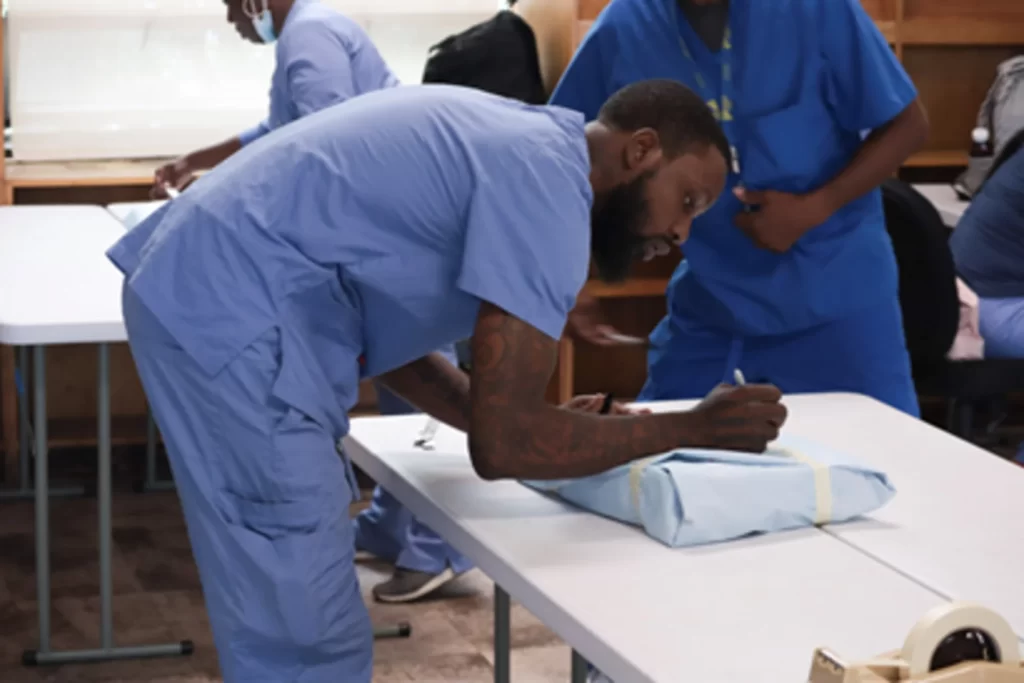Through the sterilization, cleaning, processing, assembly, storage, and distribution of medical supplies, sterile processing technicians play a crucial part in preventing infection. The sterile processing field offers rewarding entry-level jobs and opportunities for career advancement.
The training needed to become a sterile processing technician is simple; all it takes is time and study. There are several ways to become a technician in the sterile tech industry. In less than two years, you can become a sterile processing technician. Most accredited programs last nine to 24 months on average.
The need for central service technicians, who prepare and provide the clean, sanitary, and functional instruments used daily in surgeries and medical procedures, is expanding along with the healthcare industry. After completing this online school program, you’ll be confident in your aseptic technique skills, medical and surgical terminology, surgical instruments, documentation, and record maintenance.
Ultimately, sterile processing accreditation is required to work as sterile processing technicians. Therefore, before beginning any professional work, the CPSPD actually mandates that all students become certified central sterile processing and distribution technicians (CSPDT).
A sterile processor works in hospitals, clinics, and other healthcare settings, and must adhere to strict guidelines to maintain a sterile environment. If you are interested in becoming an SPT, there are several criteria you must meet.
To become an SPT, you must have a high school diploma or sterile processing diploma. Many employers prefer candidates with some post-secondary education, such as an associate degree or sterile processing technician certification. These programs typically take one to two years to complete and cover topics such as medical terminology, infection control, sterilization methods, and surgical instrumentation. Additionally, some employers may offer on-the-job training for new SPTs.
While certification is not always required to become a central service technician, it is highly recommended. Several organizations offer certification programs for SPTs, including the Certification Board for Sterile Processing and Distribution (CBSPD) and the International Association of Healthcare Central Service Materiel Management (IAHCSMM). These programs require passing an exam and maintaining continuing education credits to stay current on industry standards and best practices.
Central service techs must be able to stand for long periods and lift heavy equipment. They must also be able to reach and bend in awkward positions to properly clean and sterilize instruments. Additionally, SPTs must have good hand-eye coordination and dexterity to handle delicate instruments.
SPTs must have excellent sterile processing technician training. It includes attention to detail to ensure that all instruments are properly cleaned and sterilized. They must follow strict protocols and be able to identify any potential issues that may arise during the sterilization process. Central service techs must also keep accurate records of all instruments and equipment, including when they were last sterilized and any maintenance or repairs that have been done.
Sterile techs must be able to communicate effectively with other healthcare professionals, including surgeons, nurses, and other members of the surgical team. They must be able to explain the status of instruments and equipment, answer questions, and provide guidance on proper use and maintenance.
SPTs must maintain a professional demeanor at all times. They must be reliable, punctual, and work well under pressure. Sterile technicians should excel at their jobs. Additionally, SPTs must maintain patient confidentiality and adhere to ethical and legal guidelines.

There are several compelling reasons why someone might choose to become a SPT. Here are a few of the most common reasons to enroll in sterile processing technician training:
Job stability: The healthcare industry is one of the most stable job markets, and the need for qualified SPTs continues to grow as medical technology advances.
Career advancement: Sterile processing certification help techs to work in different job roles. With additional education and certifications, sterile techs can advance to supervisory roles, quality control, and other related fields. They can also become Certified Registered Central Service Technicians (CRCSTs) or Certified Instrument Specialists (CISs).
Variety: SPTs work with a wide range of surgical technology, instruments and equipment, providing a diverse and interesting work environment.
Helping others: Central service techs play a crucial role in ensuring patient safety and preventing infections by properly sterilizing instruments.
Competitive salary: Sterile technicians earn a competitive salary, with the potential for increased earnings with additional education and sterile processing training.
Flexibility: Many healthcare facilities offer flexible schedules, including part-time and evening shifts, making it a great choice for those looking for a work-life balance.
Entry-level position: Becoming a central service tech typically requires only a high school diploma or GED, making it an excellent entry-level position for those interested in the healthcare industry. You can also consider enrolling in a sterile processing technician certification.
Personal satisfaction: Sterile processing training teaches SPTs their work is helping to save lives and improve patient outcomes can bring a great sense of satisfaction to SPTs.
Teamwork: SPTs work closely with surgeons, nurses, and other sterile processing departments, providing an opportunity for teamwork and collaboration.
Rapid growth potential: The healthcare industry is projected to continue growing, creating even more opportunities for sterile processors in the future.
Conclusion
A career as a sterile processing technician may seem simple, but it is a critical role in the healthcare industry. Sterilizing instruments properly is essential to preventing infections and ensuring patient safety. Pursuing certification from reputable colleges such as PTTI can give aspiring SPTs an advantage during the hiring process, leading to better job placement rates. With a high employment rate of approximately 92%, the healthcare industry continues to need qualified SPTs. Enrolling in a certification program now can jumpstart a career in the healthcare industry and provide a stable and rewarding profession.
Read More: